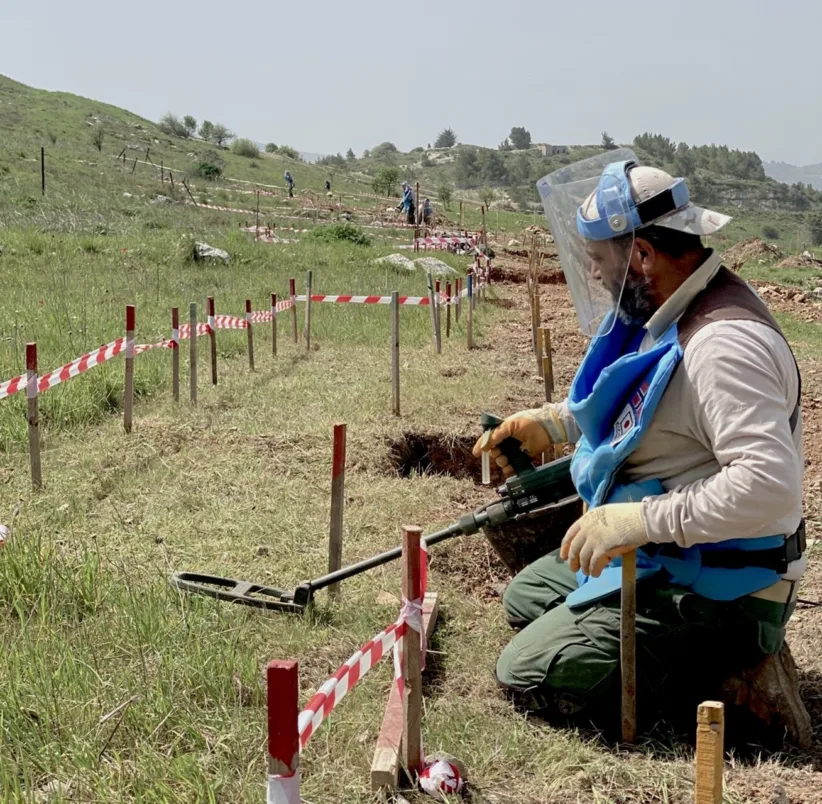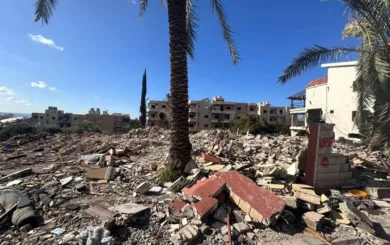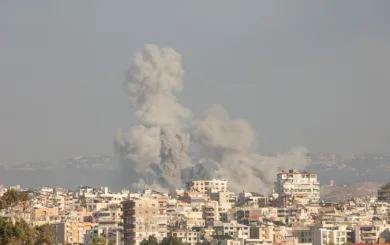Norwegian People's Aid (NPA) became involved in Lebanon following an Israeli invasion in 1982 to undertake emergency relief, physical rehabilitation and vocational training. Following a second Israeli invasion in 2006, a Mine Action and Humanitarian Disarmament Programme was introduced in response to the problem of landmines, cluster munitions and other Explosive Remnants of War (ERW) remaining after 15 years of civil war and two armed conflicts with Israel.
Although explosive contamination is present throughout the country, southern Lebanon is the most heavily-contaminated region due to Israel’s extensive use of cluster munitions in 2006, and of landmines to support positions along Lebanon’s southern border now commonly referred to as the ‘Blue Line’. As many as four million cluster munitions were fired into Lebanon in 2006 with an estimated one million of these weapons failing to explode. An estimated 55 square kilometers of land in southern Lebanon was contaminated with cluster munitions preventing people from safely using their land.
To date, 3,846 victims of ERW have been documented including 21 that were killed or injured in 2021 (up from 9 in 2020). A severe and deepening economic crisis is increasingly leading people to risk entering dangerous areas to collect wood, harvest wild foods and medicines, graze animals and expand agriculture. As many as 200,000 people live in the vicinity of contaminated areas. Growing pressures for access to land determine that clearance represents both safety and socio-economic opportunity for those benefiting both directly and indirectly from it.

What do we do, the problem and our progress
In 2006, NPA initiated a Humanitarian Mine Action Programme focused on clearing cluster munitions in southern Lebanon, expanding its focus in 2017 to include clearance of the Israeli-laid minefields located along Lebanon's southern border. By the end of 2023, NPA had destroyed 20,965 landmines and 17,619 cluster munitions and numerous other ERW in the process releasing 10 km2 of safe land back to communities. The Lebanon Mine Action Centre (LMAC) reports that at the end of 2022, 5.23 km2 of cluster munition contamination and 16.91 km2 of landmine contamination remains to be cleared.
Currently, the NPA Mine Action Programme deploys 6 Multi-Task Teams (MTT) that are trained to clear both cluster munitions and landmines. They work in southern Lebanon on tasks issued by the Regional Mine Action Centre - Nabateyah (RMAC-N) - deploying daily from an operational base in Tyre. In addition to continuing deployment of these clearance teams, NPA Lebanon has capacity to undertake non-technical survey, pre and post-impact assessment and explosive ordnance risk education (EORE).
NPA supports Lebanon in fulfilling its obligations under the Convention on Cluster Munitions via its clearance of cluster munitions and through advocacy work undertaken directly and in partnership with other stakeholders such as Norway’s Embassy in Lebanon and NPA's Mine Action Review project. In parallel, NPA also advocates for Lebanon to become a state party to the Mine-Ban Treaty.
- Since 2006 NPA has released 10,145,693 m2 of safe land back to communities
- NPA has:
- cleared 179 areas contaminated with cluster munitions and destroyed 17,619 cluster munitions
- cleared 57 minefields and destroyed 20,965 anti-personnel landmines
- cleared 3 fields containing Improvised Explosive Devices (IEDs)
- Destroyed 1,842 items of UXO
- NPA clearance teams destroyed one item for every 33 meters cleared on average between January 2020 and December 2023.
- NPA was responsible for 51% of all cluster munitions destroyed in Lebanon between January 2020 and December 2022
- In late 2021, NPA Mine Action installed a solar system that has reduced diesel used for generators by 90%.
- There are almost 4,000 recorded accidents and 900 victims of landmines, cluster munitions, and other explosive remnants of war in Lebanon according to the Landmine Monitor.
- In addition to the Humanitarian Disarmament project, NPA has a Young Empowerment programme, Aid and Emergency programme and a Human rights programme.
- Landmine & Cluster Munition Monitor country profile for Lebanon.







